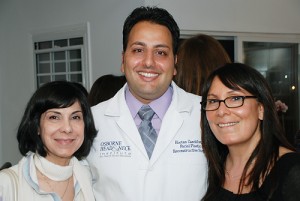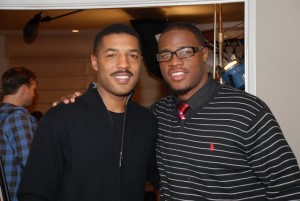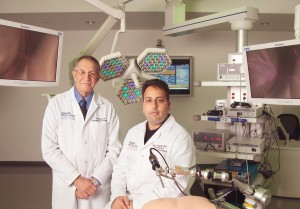- Hereditary Hemorrhagic Telangiectasia - May 25, 2016
- Hereditary Hemorrhagic Telangiectasia: Septal Perforation and Nose Bleeds - May 23, 2016
- Hereditary Hemorrhagic Telangiectasia: Epistaxis and Septal Perforation - May 18, 2016
- Wegener’s Granulomatosis: Autoimmune Disease and Multi-Focal Septal Perforation - May 9, 2016
- Kyle Korver: Facial Injury and Nasal Fracture - March 24, 2015
- Russell Westbrook: Facial Injury and Surgery - March 5, 2015
- Mega-perforation: Pushing the Limits of Septal Perforation Repair - November 26, 2014
- Septoplasty Complication and Septal Perforation - November 24, 2014
- Nose Picking (Rhinotillexis) and Septal Perforations: Why I should stop picking my nose…? - November 24, 2014
- Nasal Fractures, Septal Hematoma, and Septal Perforation: Simultaneous Rhinoplasty and Septal Perforation Repair - October 1, 2014
It is not too infrequent that Dr. Jason S. Hamilton, Director of the Division of Facial Plastic and Reconstructive surgery at the Osborne Head and Neck Institute sees a patient with a deviated septum. The question that is always asked of him is “does this need surgery?”
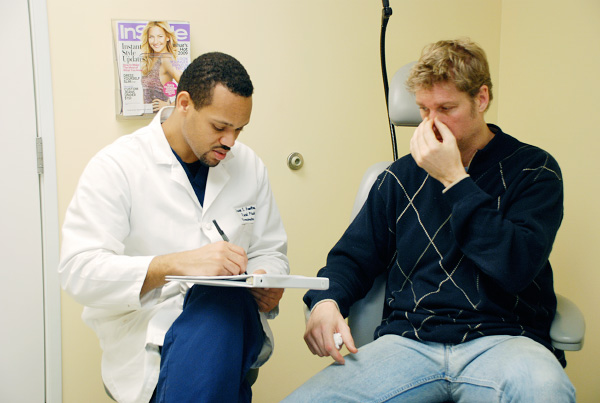
The nasal septum is the middle wall of the nose that divides the nasal cavity into right and left halves; the ideal nasal septum is situated at midline, however, an estimated 80 percent of all nasal septums are off-center. This is generally not noticed.
The term “deviated septum” refers to when the septum is so significantly shifted away from the midline that it becomes problematic. The most common symptom from a badly deviated or crooked septum is difficulty breathing through the nose. This symptom is usually worse on one side, and sometimes occurs on the side opposite the bend. In some cases the deviated septum can alter the drainage of the sinuses, resulting in frequent sinus infections. Septal deviation typically occurs due to nasal trauma.
Septoplasty is the name for the surgical procedure to correct a deviated septum. Septoplasty can be performed on its own, in conjunction with turbinate reduction or Rhinoplasty (Nose job procedure) to both improve breathing and the appearance of the nose.
A deviated septum can cause one or more of the following:
• Obstruction of one or both nostrils
• Recurrent nosebleeds
• Frequent sinus infections
• Change in the appearance of the nose
• Facial pain
• Headaches
• Noisy breathing during sleep (in infants and young children)
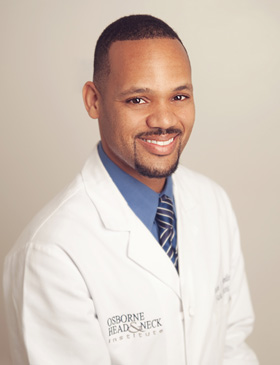
The decision to operate on a deviated septum is made in consultation with your surgeon. He or she will take into effect the amount of deviation, the other contributing factors to your symptoms (i.e. allergies, turbinate enlargement), your response to medical treatment and the severity of your symptoms. For more information on this and other nasal procedures or if you would like to make an appointment please visit www.ohninewnose.com.
A message form Dr. Jason S. Hamilton, Director of the Division of Facial Plastic and Reconstructive Surgery at the Osborne Head and Neck Institute.
“On numerous times I have seen patients that have required revision surgery for their nasal obstruction. Most of these cases are as the result of incomplete evaluation of nasal breathing prior to surgery. I believe in a full and comprehensive evaluation of nasal breathing prior to performing any nasal surgery. This will typically include nasal endoscopy, evaluation of breathing with and without decongestants and evaluation of nasal valve function.
Many of my nasal and rhinoplasty consultations are for revison rhinoplasty or septoplasty surgery. Simply put these consultations evaluate why the patient is still have breathing issues after surgery. The most common cause nasal blockage after surgery is an incomplete evaluation of nasal breathing prior to surgery especially is cases of cosmetic rhinoplasty. I believe in a full and comprehensive evaluation of nasal breathing prior to performing any nasal surgery. This will typically include nasal endoscopy, evaluation of breathing with and without decongestants and evaluation of nasal valve function.”
To learn more about Dr. Jason Hamilton or the deviated septum, visit: http://www.ohninewnose.com/
Contact a Physician at Osborne Head & Neck Institute
If you would like to speak with one of our physicians regarding this issue or another ear, nose, throat problem; or have other questions or concerns, please complete the contact form below or call us at 310-657-0123.

